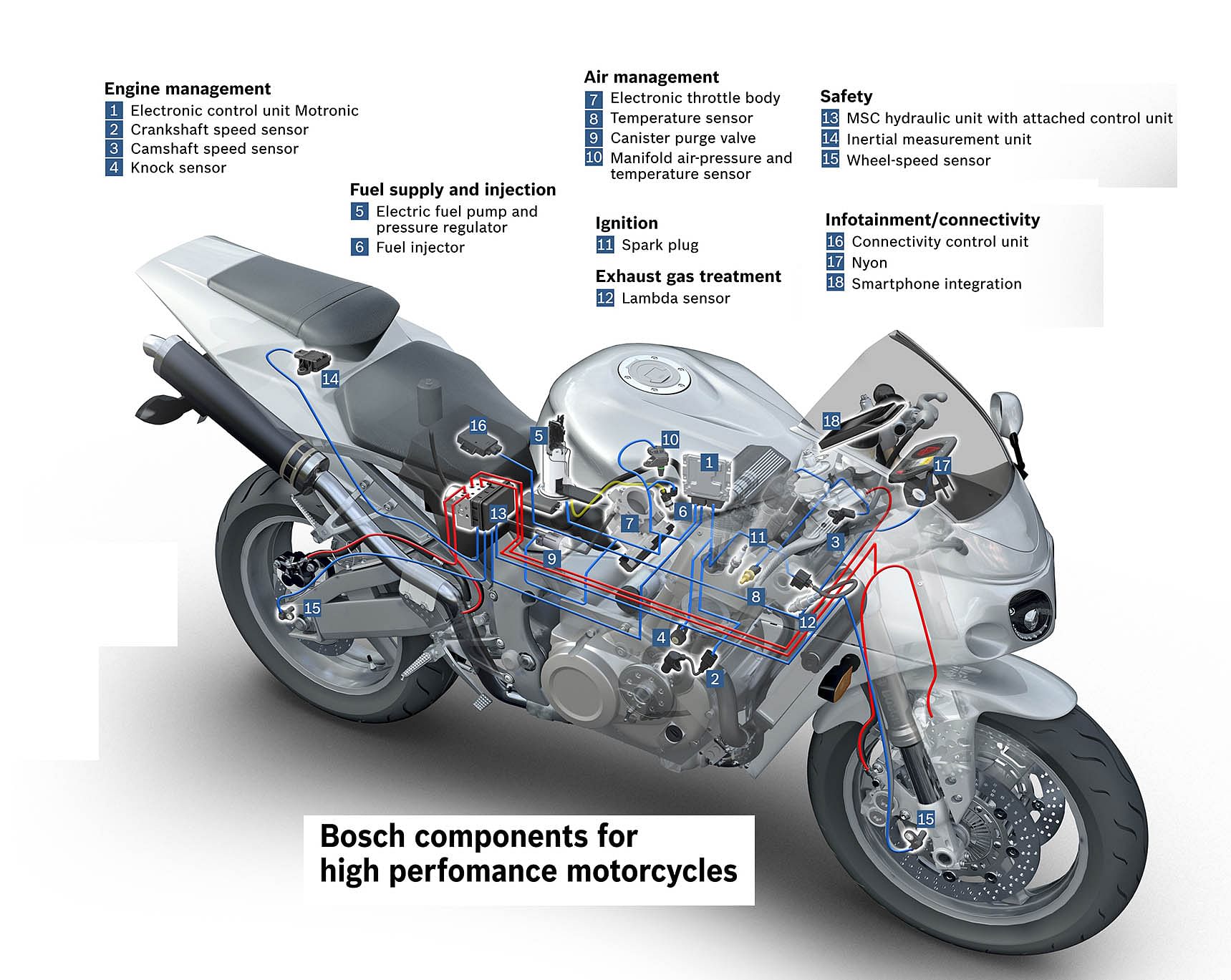Bosch bets big on motorcycle industry worldwide
Global supplier Bosch, which is looking to expand its product portfolio and strengthen its expertise in two-wheeler system solutions, aims to reposition itself in the global motorcycle market.
Global supplier Bosch, which is looking to expand its product portfolio and strengthen its expertise in two-wheeler system solutions, aims to reposition itself in the global motorcycle market. The technology and services company is about to pool its motorcycle activities from the areas of riding safety systems, powertrain technology, and display instruments into one business unit, the newly formed ‘Two-Wheeler and Powersports’.
The company says the objective is to address the individual requirements of motorcycle manufacturers worldwide even more effectively. “Bosch technology for more efficiency and safety should be part of any car, and in the future, the same will go for motorcycles,” says Dr Dirk Hoheisel, member of the board of management at Robert Bosch GmbH. “We are aiming to become a leading supplier in the motorcycle market, too.”
Two-Wheeler and Powersports, the new division, is part of the Bosch Mobility Solutions business sector. With its headquarters in Yokohama, Japan – the heart of the international motorcycle industry – and branches in the United States, Europe, India, and China, Bosch has a global reach in this vehicle segment.
In addition to powered two-wheelers, the new business unit will also cater to the market for special-purpose vehicles such as quads, personal watercraft, and snowmobiles. The unit, which is starting off with about 40 associates, can draw upon a worldwide network of several thousand colleagues plus the manufacturing capacity of the Mobility Solutions business sector.
Market likely to double within 5 years
Globally, the need for affordable mobility is on the increase, and this is pushing demand for powered two-wheelers. Studies indicate that by 2021, more than 160 million two-wheelers will be produced annually – a third more than today.
“The portion of the market relevant for Bosch, which covers driving safety systems, powertrain technology, and displays and infotainment systems, will double over the next five years,” Hoheisel says. Most of that growth will take place in Asia, studies suggest, predicting that in 2021, nearly 90 percent of all powered two-wheelers will be made in China, India and South East Asia. That group consists mainly of small motorcycles with engine displacement up to 250 cubic centimetres, one of the most common modes of transport throughout large parts of Asia.
At present, Bosch components service the entire two-wheeler spectrum: from those in Asia’s lower price segment to powerful machines with over 1,000cc displacement, for which demand is strongest in Europe, Japan, and North America.

The new business unit offers safety solutions such as ABS and Motorcycle Stability Control (MSC), a type of ESP for motorcycles. Bosch’s portfolio also includes electronically controlled injection systems, powertrain components for electric two-wheelers and interfaces for connecting motorcycles with smartphones or tablets as well as connected cloud services. “Our systems put even more safety, efficiency, and fun to ride into the motorcycle,” says Geoff Liersch, head of the new Bosch business unit.
With all of these features, Bosch has solutions for the most pressing challenges of the global motorcycle market: many countries are passing stricter emissions legislation, and more and more two-wheeler riders are involved in fatal accidents. In 2010 alone, more than 285,000 people died in accidents around the world. Yet according to GIDAS, the German accident database, using ABS, can prevent one-quarter of all motorcycle accidents resulting in injuries or fatalities. Additionally MSC can have a positive effect on the outcome of two-thirds of all motorcycle accidents on curves that occur due to rider error.
Improved fuel economy
Along with safety, the desire for fun, fuel economy, and connectivity are key drivers of Bosch’s motorcycle business. In Asia, many two-wheelers with internal-combustion engines are still fitted with a simple carburettor, whereas Bosch employs its electronically controlled injection system. This system can cut fuel consumption by up to 16 percent, depending on conditions and environment. “This is how we are helping to reduce emissions in countries such as China and India,” Liersch says. At the same time, Bosch is giving two-wheelers digital intelligence with its engine control solutions. In conjunction with a smartphone app, these make it possible to activate the immobiliser, or read out fault memory. Bosch also offers the Bluetooth interface or connectivity control unit needed for these applications.
RELATED ARTICLES
Autoliv Plans JV for Advanced Safety Electronics With China’s HSAE
The new joint venture, which is to be located strategically near Shanghai and close to several existing Autoliv sites in...
JLR to Restart Production Over a Month After September Hacking
Manufacturing operations at the Tata Group-owned British luxury car and SUV manufacturer were shut down following a cybe...
BYD UK Sales Jump 880% in September to 11,271 units
Sales record sets the UK apart as the largest international market for BYD outside of China for the first time. The Seal...






 By Autocar Professional Bureau
By Autocar Professional Bureau
 23 Mar 2015
23 Mar 2015
 13324 Views
13324 Views





 Ajit Dalvi
Ajit Dalvi




